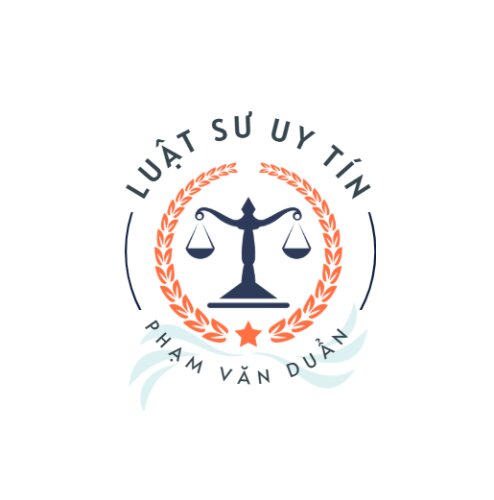Best Venture Capital Lawyers in Dong Nai
Share your needs with us, get contacted by law firms.
Free. Takes 2 min.
List of the best lawyers in Dong Nai, Vietnam
About Venture Capital Law in Dong Nai, Vietnam
Venture capital in Dong Nai, Vietnam has gained significant attention over the past decade due to rapid economic development and the growth of startup culture. Dong Nai, a province with a strong industrial foundation and close proximity to Ho Chi Minh City, is increasingly seen as a promising destination for venture capital investments. Venture capital law in Dong Nai covers legal frameworks governing private equity, investment funds, funding rounds, equity purchases, business formation, and related regulatory issues. Vietnamese law provides specific regulations for foreign and local venture capital transactions aimed at protecting investors and facilitating business innovation.
Why You May Need a Lawyer
Engaging in venture capital deals can be complex due to the multiple regulatory, financial, and operational considerations involved. Here are common situations where legal help is often necessary:
- Conducting due diligence on startups or potential investments
- Drafting and negotiating investment agreements, shareholder agreements, and term sheets
- Navigating foreign investment restrictions and compliance requirements
- Ensuring intellectual property rights are protected throughout the investment process
- Structuring cross-border transactions and managing currency risks
- Resolving disputes between investors and founders
- Adhering to anti-money laundering regulations and financial transparency
- Handling exit strategies such as IPOs or M&A
A qualified venture capital lawyer in Dong Nai can guide you through these processes, help mitigate risks, and ensure your investment is secure and compliant with Vietnamese law.
Local Laws Overview
Venture capital transactions in Dong Nai are regulated primarily under several Vietnamese legislative instruments, including the Law on Investment, the Law on Enterprise, and relevant regulatory guidance from the State Securities Commission and the Ministry of Planning and Investment. Key aspects include:
- Business Registration and Licensing - Investment funds and startup companies must be properly registered and licensed. There are industry restrictions and minimum capital requirements for foreign participation in certain business sectors.
- Foreign Ownership Limits - While many sectors are open to foreign investors, some have limitations or require government approval, including technology, education, and finance.
- Investment Procedures - Venture capital deals may require notification or approval from local authorities depending on the structure and sector.
- Intellectual Property Protection - Securing trademarks, patents, or copyrights is crucial for tech startups and is governed by Vietnamese IP law.
- Contract Law - All agreements must comply with the Vietnamese Civil Code and associated regulations. English language contracts are commonly used but must be translated for registration or enforcement.
- Taxation - Venture capital funds and investments are subject to corporate income tax, withholding tax, and other applicable levies. Tax incentives may be available for certain sectors and locations.
- Dispute Resolution - Disputes can be resolved through negotiation, mediation, Vietnamese courts, or, in some cases, international arbitration if stipulated in the contract.
It is essential to have updated legal advice as regulations evolve and may vary based on the specifics of each transaction.
Frequently Asked Questions
What is venture capital?
Venture capital is funding provided by private investors or firms to startups and small businesses that are believed to have significant growth potential. Investors typically receive equity in the company in return for their investment.
Can foreigners invest in Vietnamese startups in Dong Nai?
Yes, foreigners can invest in Vietnamese startups, but they must comply with investment registration procedures, sectoral restrictions, and may face ownership limits in particular sectors.
What is the process for starting a venture capital fund in Dong Nai?
Establishing a venture capital fund generally involves company formation, fund registration with the authorities, meeting minimum capital requirements, and complying with financial regulations.
Are there any restrictions on the sectors venture capital can invest in?
Yes, certain sectors have restrictions for foreign ownership or may require special licenses, especially in areas such as banking, telecommunications, and security-related industries.
How are investment agreements structured?
Investment agreements typically outline the investment amount, type of shares, rights and obligations of each party, exit terms, governance structure, and dispute resolution mechanisms. Legal review is strongly advised.
How do taxes impact venture capital in Dong Nai?
Profits from venture capital investments are subject to corporate income tax, and dividend distributions may incur withholding tax. Tax incentives may be available for certain investments, particularly in high-tech and innovative enterprises.
How are intellectual property rights handled in a venture capital deal?
Investors and startups must ensure that all intellectual property is appropriately registered and protected under Vietnamese law before and after the investment to avoid future disputes.
What happens if there is a dispute?
Venture capital contracts usually specify how disputes will be resolved. Common methods in Dong Nai include negotiation, mediation, local courts, or arbitration - either in Vietnam or abroad if agreed in the contract.
Do I need a lawyer for a venture capital transaction in Dong Nai?
Yes, a lawyer with experience in Vietnamese commercial and investment law is highly recommended to navigate local regulations, protect your interests, and ensure compliance.
How long does it take to close a venture capital deal?
The timeline varies based on the complexity of the transaction but typically ranges from several weeks to several months, including due diligence, contract drafting, and regulatory approvals.
Additional Resources
Several governmental agencies and organizations in Vietnam provide information and support relating to venture capital:
- Ministry of Planning and Investment (MPI) - Oversees investment activities and business registration.
- State Securities Commission (SSC) - Regulates securities and investment funds.
- Vietnam Chamber of Commerce and Industry (VCCI) - Offers guidance and support for entrepreneurs and investors.
- Dong Nai Department of Planning and Investment - Handles local investment procedures and approvals.
- Vietnam National Innovation Center (NIC) - Provides resources for startups and investors.
You may also consider consulting legal and financial advisory firms that specialize in venture capital transactions in Vietnam.
Next Steps
If you are seeking legal assistance in venture capital matters in Dong Nai, consider the following steps:
- Define your objectives clearly, whether you are an investor or an entrepreneur seeking funding.
- Consult with experienced legal professionals who understand venture capital and local Vietnamese law.
- Prepare and review all necessary documentation, including business plans, due diligence materials, and draft contracts.
- Engage in thorough negotiations, ensuring that all terms are clearly set out and understood by all parties.
- Follow regulatory procedures for registration and approval, as required by local and national authorities.
- Maintain good communication with your legal advisor throughout the process to address any issues as they arise.
Timely legal advice can ensure your venture capital transaction is efficient, compliant, and secure, helping to protect your interests and foster the growth of your business or investment in Dong Nai, Vietnam.
Lawzana helps you find the best lawyers and law firms in Dong Nai through a curated and pre-screened list of qualified legal professionals. Our platform offers rankings and detailed profiles of attorneys and law firms, allowing you to compare based on practice areas, including Venture Capital, experience, and client feedback.
Each profile includes a description of the firm's areas of practice, client reviews, team members and partners, year of establishment, spoken languages, office locations, contact information, social media presence, and any published articles or resources. Most firms on our platform speak English and are experienced in both local and international legal matters.
Get a quote from top-rated law firms in Dong Nai, Vietnam — quickly, securely, and without unnecessary hassle.
Disclaimer:
The information provided on this page is for general informational purposes only and does not constitute legal advice. While we strive to ensure the accuracy and relevance of the content, legal information may change over time, and interpretations of the law can vary. You should always consult with a qualified legal professional for advice specific to your situation.
We disclaim all liability for actions taken or not taken based on the content of this page. If you believe any information is incorrect or outdated, please contact us, and we will review and update it where appropriate.










